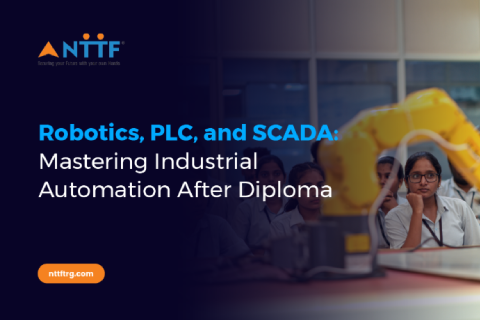Robotics, PLC, and SCADA: Mastering Industrial Automation After Diploma
October 16, 2025 2025-10-16 10:13Robotics, PLC, and SCADA: Mastering Industrial Automation After Diploma
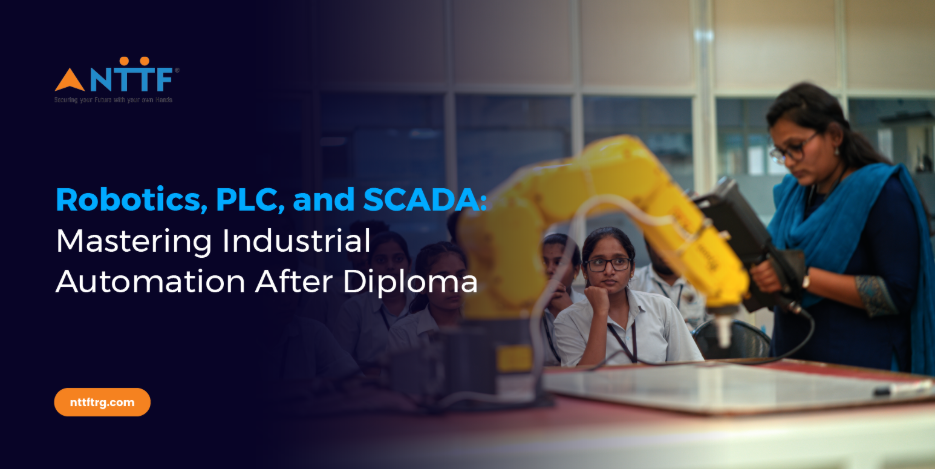
A massive biscuit factory where thousands of packets are being packed, sealed, and loaded onto trucks without a single human hand in sight. Sounds futuristic? It is happening right now. Robots are sorting and stacking, machines are doing heavy lifting, and the entire process flows like clockwork.
What makes it all tick? Industrial Automation.
Behind this seamless, high-speed operation are skilled professionals who work with Robotics, PLCs (Programmable Logic Controllers), and SCADA (Supervisory Control and Data Acquisition) systems to make the magic happen.
And if you are a diploma holder in engineering with an interest in programming, systems, or automation, this could be your fast lane into a future-proof, high-growth career.
What Is Industrial Automation?
Industrial automation is like giving brains to machines. It is the process of using control systems like computers, robots, and sensors to manage industrial processes without human intervention. From textile mills to smart factories, automation helps businesses reduce errors, increase speed, and save costs.
Think of it like this: instead of someone switching a button 1,000 times a day to operate a machine, a PLC can be programmed to do it on its own at the exact right time, with precision.
Real-World Example: From Manual Work to Smart Automation
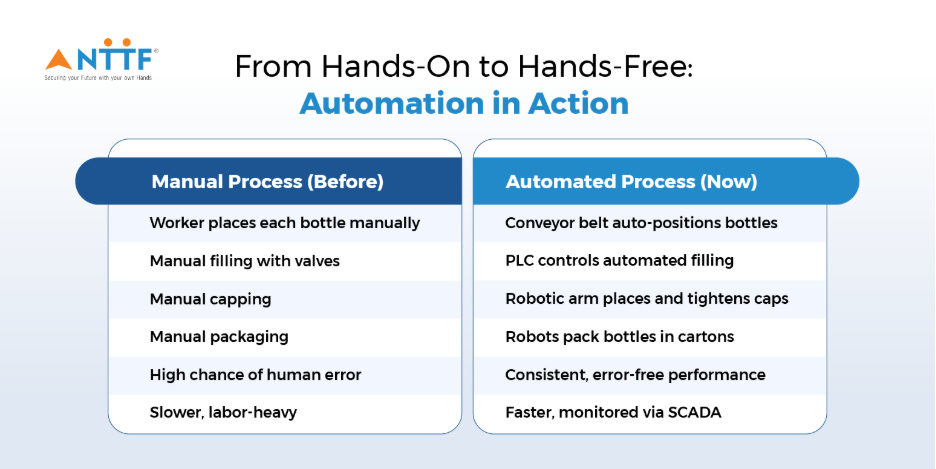
Think about a basic bottling plant—like the ones used to fill and seal packaged water bottles. In the past, workers had to manually place bottles, control the filling, and check the caps. It was time-consuming, tiring, and full of errors.
Now, thanks to PLC and Robotics, this entire process can be automated. The conveyor belt moves the bottles, sensors detect when a bottle is in position, a programmed PLC controls the filling and capping, and robots pack the bottles into cartons—all with incredible speed and precision. One operator just monitors it on a screen using SCADA, without touching a single bottle. That is the power of industrial automation with less manual work, more efficiency, and smarter systems doing the job right every time.
Why You Should Consider a Career in Automation
If you are someone with a Diploma in Mechanical, Electrical, Mechatronics, or Electronics Engineering, and you are wondering what’s next, a Post Diploma in Industrial Automation could be your smartest step.
Here’s why:
- Growing demand: Companies across India and abroad are investing in smart factories. They need professionals who understand automation.
- Shorter course, quicker results: In just one year, you get trained and job-ready. No long waits. No over-the-top theory.
- Core engineering role: This is not a support job. You will be in the core technical team solving real industry problems.
What Will You Learn in This Course?
At NTTF (Nettur Technical Training Foundation), the Post Diploma in Industrial Automation CP19 is designed to give you hands-on skills that matter. The program is aligned with real industry needs and is led by experienced faculty who have worked in actual automation roles.
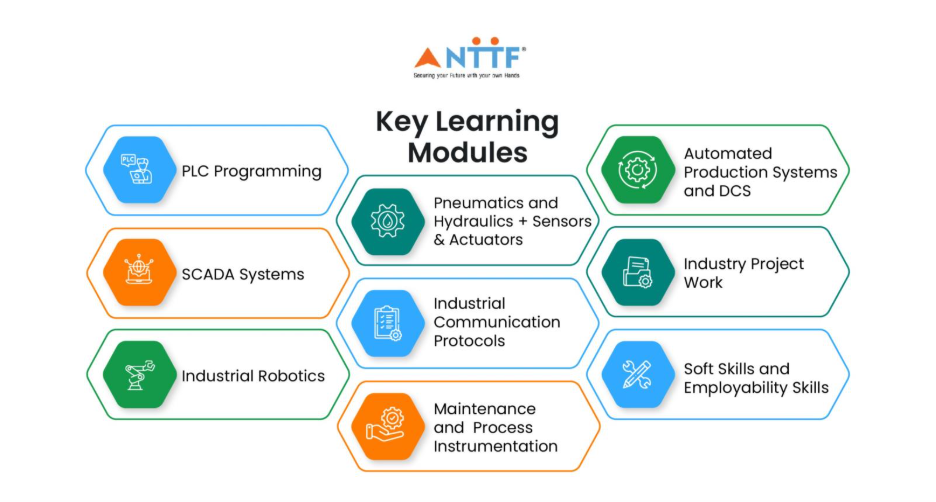
Career Opportunities After the Course
Once you complete your Post Diploma in Industrial Automation, here are just some of the roles open to you:
- PLC Programmer
- SCADA Technician
- Robotics Technician
- Maintenance Engineer (Automation)
- Controls Engineer
- Industrial Systems Integrator
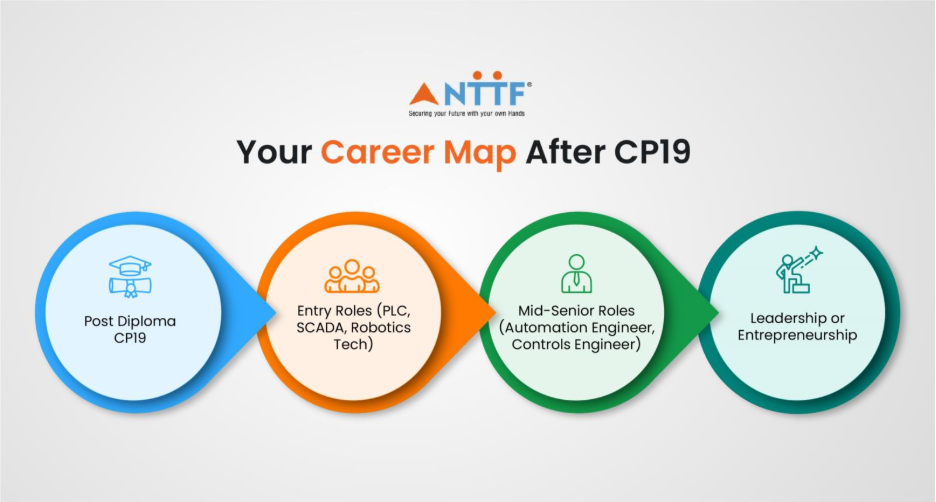
Key Industries Hiring You:
- Automobiles, FMCG, Consumer Electronics
- Smart Factories (Industry 4.0)
- Power Plants and Utilities
- Oil & Gas
- Process Industries (Food, Pharma, Chemicals)
Also, if you have entrepreneurial dreams, you can even start your own automation consultancy or maintenance service business. The possibilities are wide open.
Why Now Is the Best Time
Automation is not a trend; it is the future. With industries looking for speed, precision, and efficiency, they are automating faster than ever.
And unlike some tech roles that demand a 4-year degree or heavy coding, automation respects skills over titles. If you have the right hands-on training, you are in.
At NTTF, we also back our training with placement support. Our 99%+ placement record is proof that industries trust our students. With global recruiters and decades of legacy in technical training, we make sure you do not just learn; you get hired.

